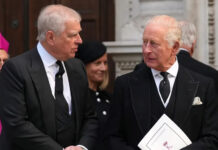International Women’s Day, which falls on March 8, is more than a seasonal commemoration of what women have accomplished throughout history; it is also a call to reinforce women’s vital role in co-creating the world alongside their male counterparts. Furthermore, the day serves as a reminder that women are an essential component of humanity’s progress and prosperity in the world.
International Women’s Day honors women’s cultural, political, and socioeconomic achievements, as well as their empowerment. The United Nations declared “Celebrating the Past, Planning for the Future” as the subject for International Women’s Day in 1996. Every year since then, a theme has been assigned to the celebrations. The United Nations has designated the year 2022 as “Gender Equality Today for a Sustainable Tomorrow,” with the goal of honoring women who are working to create a more sustainable future. However, the website for International Women’s Day deviated from the UN’s topic and proclaimed “Break the Bias” as the subject for this year. This describes a world free of bias, stereotyping, and discrimination; a society that is diverse, equal, and inclusive; and a world that values and celebrates individual differences.
International Women’s Day was first observed in 1856 when hundreds of women marched through the streets of New York to protest the cruel conditions in which they were forced to work. However, it was not until many years later that March 8 was designated as International Women’s Day. This is due to the United Nations’ refusal to approve that date.
The United Nations only recognized the commemoration of this occasion in 1977, when it passed a resolution allowing countries to choose any day of the year to commemorate International Women’s Day, and the majority of countries chose March 8 as the date.
Women in Saudi Arabia have played an important role in the development of the country, and they are a pillar in its growth and development. The laws of the Kingdom, which are based on Islamic Shariah, embraced the idea of complementary equality between men and women, taking into account the traits and features of both sexes in order to achieve gender equality and justice in the end.
The Kingdom believes that integrating male and female relationships is the best method to promote and safeguard human rights. As a result, it has implemented reforms to increase women’s participation in nation-building and economic development, such as unifying the retirement age for both sexes, preventing gender discrimination in terms of wage, types, and fields of work, and working hours, and empowering women to start businesses without the approval of their guardians, in addition to ensuring equality in the work environment, wages, and other areas.
In order to achieve gender balance and equity, the Kingdom has made significant efforts and tremendous steps toward improving the role of women in leadership roles. It has launched several initiatives in this regard, including a project to empower women in decision-making positions, a project to achieve gender parity in the civil service, a project to implement a remote work strategy in the civil service, a project to establish children’s hospitality centers at workplaces, and the National Platform for Saudi Women Leaders.



